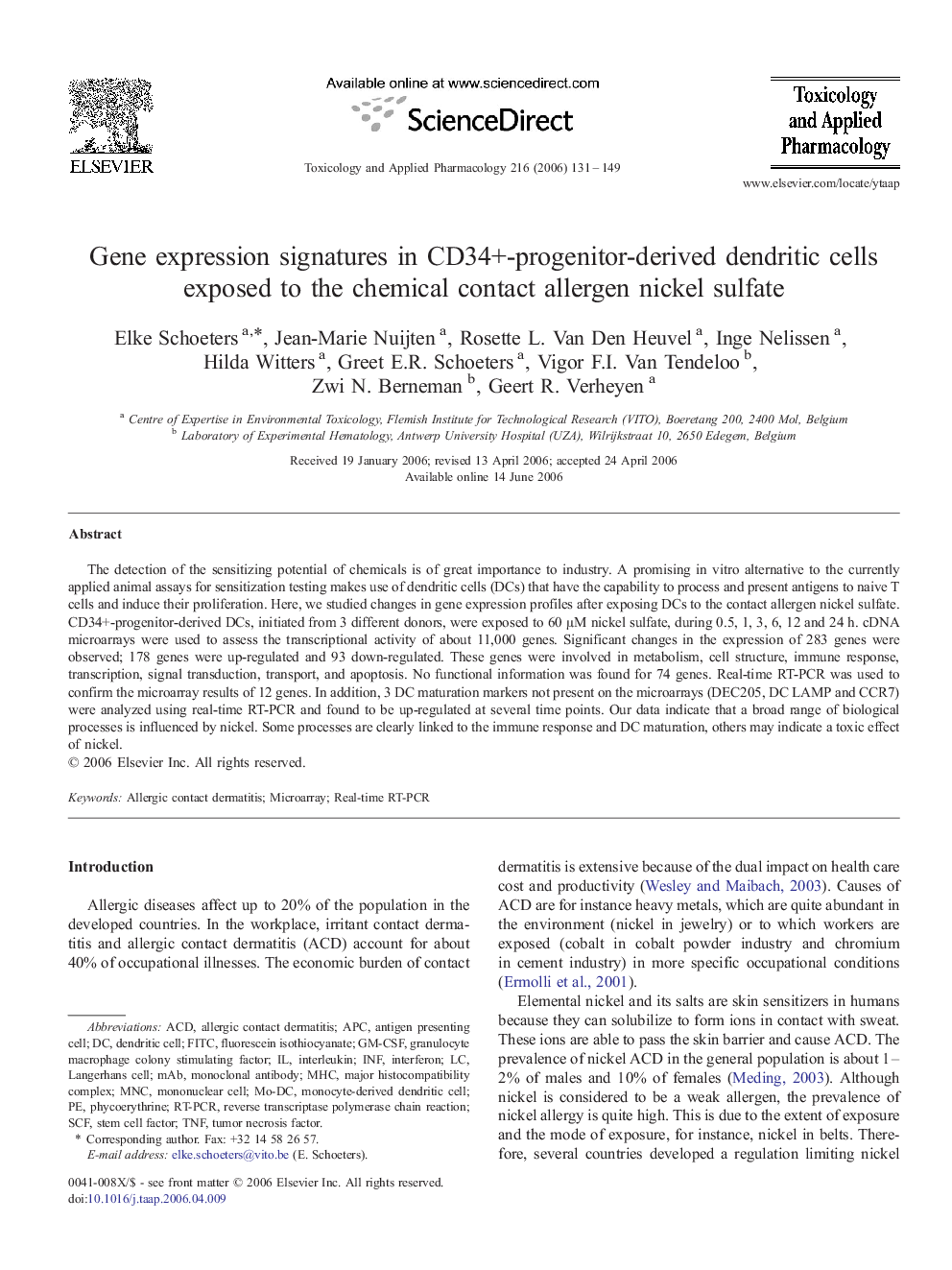| Article ID | Journal | Published Year | Pages | File Type |
|---|---|---|---|---|
| 2572015 | Toxicology and Applied Pharmacology | 2006 | 19 Pages |
The detection of the sensitizing potential of chemicals is of great importance to industry. A promising in vitro alternative to the currently applied animal assays for sensitization testing makes use of dendritic cells (DCs) that have the capability to process and present antigens to naive T cells and induce their proliferation. Here, we studied changes in gene expression profiles after exposing DCs to the contact allergen nickel sulfate. CD34+-progenitor-derived DCs, initiated from 3 different donors, were exposed to 60 μM nickel sulfate, during 0.5, 1, 3, 6, 12 and 24 h. cDNA microarrays were used to assess the transcriptional activity of about 11,000 genes. Significant changes in the expression of 283 genes were observed; 178 genes were up-regulated and 93 down-regulated. These genes were involved in metabolism, cell structure, immune response, transcription, signal transduction, transport, and apoptosis. No functional information was found for 74 genes. Real-time RT-PCR was used to confirm the microarray results of 12 genes. In addition, 3 DC maturation markers not present on the microarrays (DEC205, DC LAMP and CCR7) were analyzed using real-time RT-PCR and found to be up-regulated at several time points. Our data indicate that a broad range of biological processes is influenced by nickel. Some processes are clearly linked to the immune response and DC maturation, others may indicate a toxic effect of nickel.
